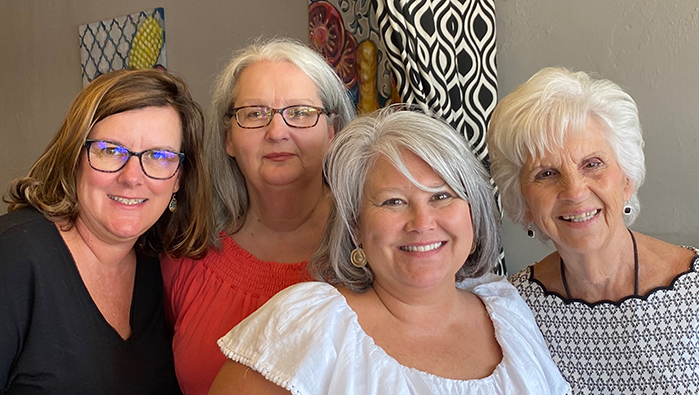
"I couldn't move." A stroke survivor's journey from laying in a hospital bed to dancing at her granddaughter's wedding
Shirley Bailey is a stroke survivor. Her story has a positive outcome, but the road to recovery hasn't always been easy. Shirley had a stroke in November of 2019. She was at home when it happened. By chance, her granddaughter was coming over that day. She got concerned when Shirley didn't answer the door.
"(I) don't know what happened exactly, but I passed out in the bathroom," Shirley said. "I guess I was there for a while. I could hear my granddaughter trying to get in, but I couldn't do anything about it. I couldn't move."
Shirley's granddaughter broke down the door, found her and called 911. What happened next is still a blur, but the actions that were taken saved her life.
"They got me out to the ambulance. They gave me an injection and I remember getting to the hospital," Shirley said. She was taken to Methodist University Hospital. She was treated for a stroke and had a clot removed by the expert team with the Methodist Neuroscience Institute.
SUBSCRIBE TO OUR BLOG
and you'll receive more health & wellness tips right in your inbox.
SUBSCRIBE NOW"I could hear them talking, and I could hear my son crying," Shirley explained. "(I) heard them say, 'we're going to lose her if we don't get her up to the operating room.'" Shirley woke up in the ICU feeling like a new person.
"I'm telling you, I was fine," she said. "I feel like I'm a miracle even to be here." "The nurses were wonderful, and I received exceptional care."
 Shirley had no reported health issues before her stroke, but it still happened. People need to know the signs and symptoms of a stroke — and know what to do if they suspect someone has had a stroke.
Shirley had no reported health issues before her stroke, but it still happened. People need to know the signs and symptoms of a stroke — and know what to do if they suspect someone has had a stroke.
In Shirley's case, her granddaughter's quick actions and the treatment she received at Methodist University Hospital saved her life.
A stroke is a cerebrovascular disease that is caused when a clot bursts, blocking a blood vessel that carries oxygen and nutrients to the brain. It can be a devastating, life-altering event. During a stroke, brain cells begin to die within minutes, so every second is critical when it comes to seeking treatment.
Shirley went through two weeks of rehabilitation and remains very active today. She even got to dance at her granddaughter's wedding In November 2020, a year after her stroke.
"I danced, and my nephew came up and said 'come on, Grams!' It was special because my granddaughter is the one who found me."
Want to learn more about expert care for strokes?
Our team is committed to excellence in the treatment and management of strokes.
Five Methodist hospitals are certified as Comprehensive Stroke Centers or Primary Stroke Centers.
Related Articles


